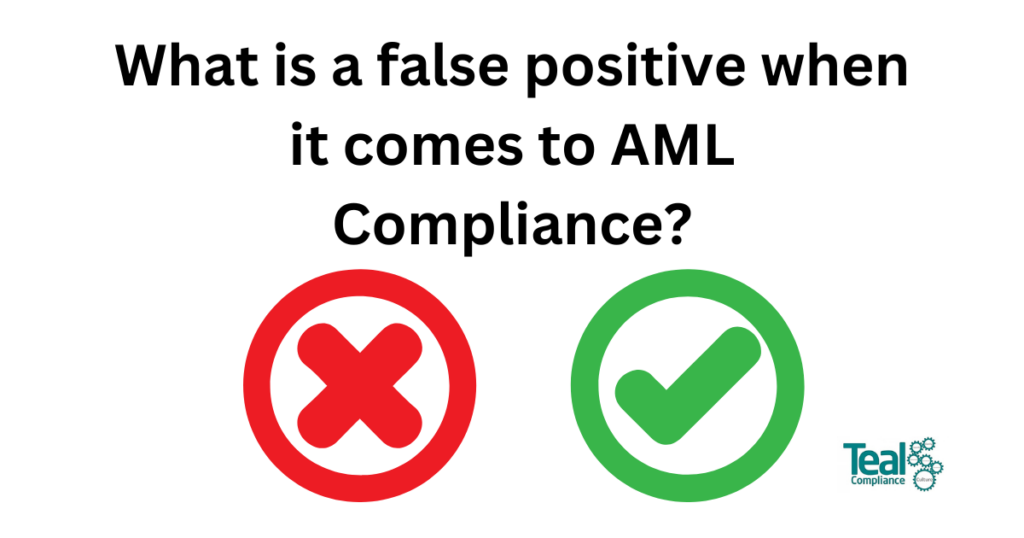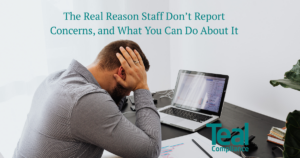You know those ‘false positives’ we get in our AML checks? They’re a real pain, right? They basically grind things to a halt, and suddenly everyone’s chasing down leads that go nowhere. It’s not just annoying, it’s a huge drain on time and resources that should be spent on, you know, real compliance.
Plus, here’s the annoying bit, all that noise from the false alarms. It actually makes it harder to spot the actual dodgy stuff. We’re so busy dealing with the fake alerts, we might miss the genuine threats. And that’s the last thing we need, isn’t it? #stopthebaddies
This can happen for various reasons, and we’ll detail some below so you can keep your ears to the ground:
FACT: Regulators can ask to see your risk assessment if there is compliance failure at your practice.
Common and Generic Names
Clients with common names might be mistakenly flagged if their name matches someone on a sanctions list or a Politically Exposed Person (PEP) list.
The data from the Office of National Statistics of 2023 shows that Muhammad was the most popular boys’ name in four out of nine regions in England and 63rd most popular in Wales (followed by Noah and Oliver).
Now, in 2023 there were 4,661 Muhammads born across England and Wales; Mohammed came in 28th with 1,601, and Mohammad came 68th with 835. You can see how easily a misspelling could occur.
You’re a firm in rural Wales, and you have a potential new corporate client dialling in from abroad whose name is Owen Jones. A very lovely Welsh name that’s also extremely common.
While sanction checks are a mandatory compliance measure, they are susceptible to inaccuracies during the screening process. These inaccuracies can manifest as both false positives and false negatives, which ultimately undermine the efficacy of both sanction and PEP checks.
Several factors contribute to these inaccuracies. Outdated sanction lists, name variations – for instance the names above, ‘Muhammed Ahmed’ being recorded as ‘Mohammed Ahmad’, or “Owen Jones” being recorded as “Ewan Jones” could lead to inaccurate matches or failures to correctly identify an individual.
The really scary part? If these checks aren’t spot-on, someone who’s actually sanctioned could slip through the cracks. And that puts us, and you, at serious risk of getting tangled up in some seriously dodgy financial activities. Trust me, it’s not worth the gamble.
Outdated Data
Using old or incomplete data is a big issue for causing false positives. Here are some examples that law firms really have to think about and communicate consistently because of:
Say you have an outdated sanctions list and then run a client check against it? The client might have actually been on that naughty list previously, but no longer is. Can you imagine the sensitive conversations with your client around this as well as the delays?
I’d ask you questions to protect against this scenario including where your data is stored and is it in real-time?
FACT: The MLR 2017 imposes a five-year limit on keeping clients’ personal data contained in CDD documents…unless you need to retain the CDD documents and records about the transaction under an enactment or for legal proceedings.
In the above example I’d say there is a need for advanced technology. If you can invest in sophisticated tech matching algorithms and data verification tools it will give your AML processes a boost.
Sticking with the data causes, simple but catastrophic for management, could be typos, formatting errors, and inconsistencies that may well be human error led. Are your staff literate, savvy and excellent at proofing before the data is saved?
Address Discrepancies
This comes up with residual balances a lot – the address of the client and any discrepancies you hold. However in this instance, old address data can trigger a false positive too. Say a client has moved house, but the previous addresses you hold for them could now actually be linked to a high-risk individual. I talk more about human error further down in this blog.
Another embarrassing conversation with your client and an unnecessary investigation.
Do you rely on outdated client databases? Are your CRM within your CMS up to date?
Irrelevant Data from Public Records
You know, when we’re running these AML checks, especially with public records, we’ve got to be super careful. Those databases can be a real minefield of old and useless info. Imagine, we get a hit because someone was linked to a company that doesn’t even exist anymore. Boom, false positive. We’re chasing our tails for hours over something completely irrelevant.
And trust me, there are plenty of firms that have learned this the hard way, it’s a balancing act between competent compliance and common sense. Say a law firm has relied on public records without really checking if the data’s current or even relevant to the client? It’s a classic case of ‘garbage in, garbage out,’ and it just ends up wasting everyone’s time and resources.
PEP (Politically Exposed Person) Matches
I’ve alluded to PEP matches above, but think about it, you get a new client, and their name pops up as a potential PEP. But here’s the thing, it’s just a common name, and they’re completely unrelated to any politically exposed person. The problem? Your system is pulling up outdated data. Maybe years ago, someone with the same name held a public position and you’ve flagged that. However, in this regard, that’s ancient history now and yet your system has still triggered a false positive.
And that’s the real danger. If you’re relying on old, stale data for PEP checks, you’re basically setting yourself up for a ton of these false alarms. It’s not just a time-waster; it’s a real compliance risk. You’ve got to have current, accurate information to avoid getting bogged down in these pointless investigations.
Last but not least, it’s good old human error.
Human Error
It’s not just dodgy data that causes those annoying false positives in AML checks. We’ve got to remember, humans are involved too, and we’re not perfect. We all know that time is often not our friend working in a law firm. Say a legal cashier is under pressure and has typed in ‘£1,000,000’ instead of ‘£100,000’, or they misread a transaction description and suddenly, you’re chasing a phantom money launderer. It’s easy enough to do when you’re dealing with tons of documents and tight deadlines, especially in conveyancing.
And it’s not just typos. I’ve seen cases where someone ignores the context – like a big cash deposit that’s actually from a legitimate sale – or they’re using old data because they’re in a hurry. It’s a real reminder that even with all the fancy systems, human error can still throw a massive spanner in the works.
FACT: Ongoing monitoring involves scrutinising transactions to ensure they are consistent with known client information
Strategies to reduce false positives
False positives can create significant challenges for any law firm, including wasted time and resources, delays for legitimate clients, and potential bottlenecks in compliance processes…..
To me, it’s about managing your compliance and risk management processes efficiently because it’s crucial to strike a balance between minimising false positives and avoiding false negatives (where genuine suspicious activities go undetected). The cost to a business for both small firms and larger firms if their systems flag up wrong information can be devastating. AML is complex, I know, but being on guard for any vulnerability your firm has is key and although “when in doubt might” come to mind, it’s really about working correctly to mitigate any inaccurate red flags too. No-one wants a false positive error that impacts your legal practice which is why I can’t emphasise enough how important training is and also having a team like Teal being there to support you and your colleagues (and clients of course).
FACT: Training for employees must ensure understanding of firm policies and AML compliance procedures under Regulation 24.
The good thing is that there are a wealth of strategies you can use to reduce false positives.
To begin, it is imperative to address data quality. Implementing robust data hygiene practices is super important; this entails ensuring your client data is accurate and subject to regular updates. That’s the important bit, you have to consistently check on updates. My advice would be to provide comprehensive training to all your staff regarding the correct capture of information during the onboarding phase. This training can seriously mitigate the risk of future data mismatches.
Secondly, I’d strongly recommend enhancing Know Your Customer (KYC) and due diligence procedures beyond the minimum requirements. Employing independent verification tools to cross-reference data and address any potential gaps will definitely reduce potential false positive results.
Finally, the centralisation of data across your firm is critical. The establishment of a centralised data management system for compliance purposes will help with all departments.
In conclusion, what is the impact of a false negative in our AML controls?
Look, we all know false positives are a pain, but we can’t just throw our hands up and accept them. We need to get smarter about how we track and manage them. First off, I’d say look at your false positive ratio – what percentage of those alerts are actually worth your time? You should be aiming to see that number go down, consistently.
Then, there’s the alert handling time. How long are you spending on each case? If it’s taking forever, you definitely need to think about streamlining your workflows to cut out the unnecessary steps.
You know I’m an advocate for effectively leveraging tech? Let’s be real in this scenario, we all need to look at our own resource allocation when it comes to compliance and risk management. By this I mean, are you throwing bodies at this problem, or could you be using tech to automate some of the grunt work?
LawCare data shows that staff are already anxious and stressed at work, so if they are already swamped, plus busy dealing with fake alerts, they then can’t focus on actual risks or, you know, doing their actual jobs and bringing in fees. False positives are a pain in resources.
You know the SRA isn’t getting any easier on you as a law firm, which means you can’t afford to be wasting time and money on false alarms. I’d recommend building a solid strategy – a mix of good tech, smart processes, exceptional consistent training, and human judgement. It’s about getting your AML accuracy up without sacrificing safety.
And our clients? They’re the ones who suffer the most. Imagine being delayed or questioned for no reason – that’s going to damage relationships, right?
From my perspective, all these false alerts mean you could miss crucial reporting deadlines or just get so bogged down with checks that you can’t make quick decisions. My biggest concern for you would be that with all this noise, you might actually miss the real money laundering risks staring you right in the face.
Amy




